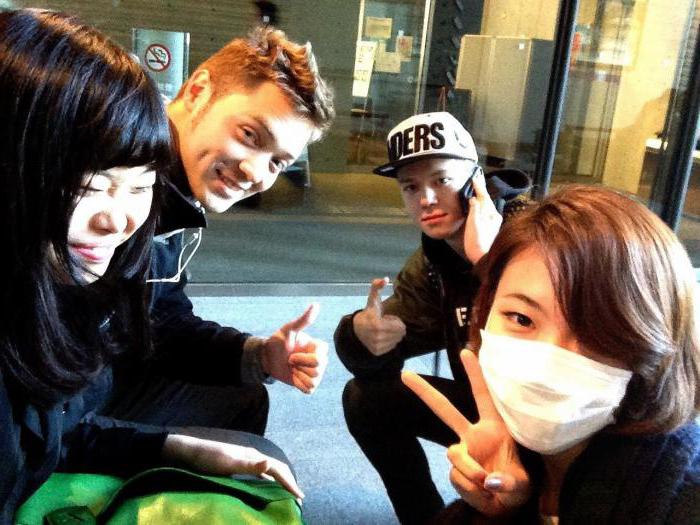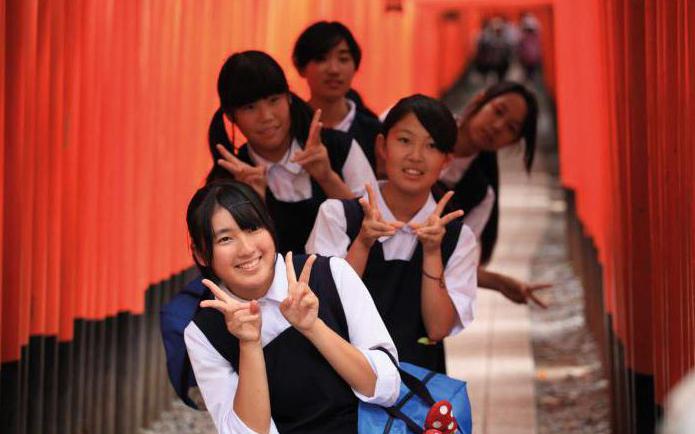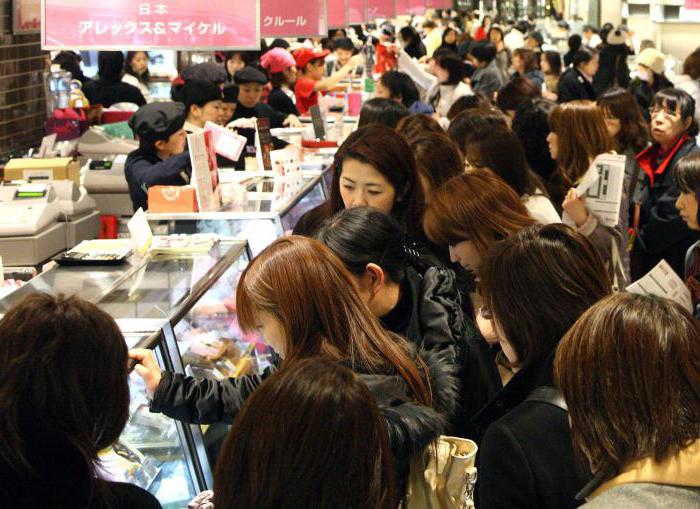“If you set out to fly somewhere to Mars, start from Japan!” - say so many Americans or Europeans who managed to settle in the Land of the Rising Sun. Indeed, moving to Japan for permanent residence is quite difficult, and not all those who settled in a country so exotic for Russians can adapt to the way of life in Japan.
The traditional way of life in Japan
Life in Japan is in many ways similar to the traditional way of life in other states. A typical Japanese’s day consists of work, personal affairs and family, and the difference between representatives of different sectors of society is only in how much time each component takes.

Most Japanese rightly consider themselves workaholics. It is customary in the country to stay at work, maintain and develop relations with the team, corporate holidays, joint field trips and compulsory gatherings after a working day or during lunch cannot be ignored. The average working day of a resident of a metropolis is 10 hours, another 1.5-2 hours are spent on the way home. Men, as a rule, work more, striving to fully provide for their families, so that the main task of the wife is only raising children and housekeeping.
So, the family is extremely important for the Japanese, but the attitude towards it in the Land of the Rising Sun is fundamentally different from what is accepted in Russia and European countries. Most here get married or marry unlovingly. In Japan, there is the concept of “antaeus,” which literally means “stability.” This word implies the presence of savings (from five million yen, which equals approximately fifty thousand dollars) and highly paid work with the prospect of career growth, the presence of one's own living space is also welcomed.
A rare Japanese woman will agree to associate her life with a young man who does not have antaeus. A common situation is that a girl meets someone she loves and marries a guy who can provide stability. Not surprisingly, cool relationships are often established in families. At the same time, young people who have not yet started a family by the age of thirty lose their prospects in the service, and single girls stay away from friends and at work.
Another part of the life of the Japanese, the importance of which is difficult to overestimate, is hobbies. Choosing a hobby, the Japanese becomes a member of a certain group. But an interesting feature here is that success is not as important as regular class attendance, communication with members of the circle and joint gatherings. A Japanese can learn the same dance for years or learn a foreign language without moving one iota in this matter.

Stages of the formation of the Russian community
The first Russians appeared in Japan as early as the mid-nineteenth century, but the main wave of migration came in 1917-1924, when officers of the Kolchak army and their families, Far Eastern merchants and industrialists poured into Japan as a descendant. Even then, the Japanese government severely restricted immigration, so many had to move to more hospitable countries. In 1918, a little more than seven thousand Russians lived in the Land of the Rising Sun, and by 1930 their number had decreased to two thousand people.
Albeit insignificant in quantitative terms, but the steady growth of the Russian community in Japan began in the 1980s.At present, the number of Russians in Japan reaches 12-13 thousand people, but many believe that the official figures are too low, because the statistics do not take into account ethnic Russians who obtained Japanese citizenship and Russian citizens of other states (compatriots from Ukraine, Belarus, Kazakhstan and other post-Soviet countries).
The attitude of the Japanese towards Russian immigrants
Due to the not very friendly attitude of locals to immigrants, life in Japan for the Russian does not seem simple. The fact is that the country is mono-ethnic (more than 90% of the population are Japanese), and everyone who is not Japanese by birth, even after obtaining citizenship, is considered a stranger. There is no particular relation to immigrants from Russia, discrimination against visitors applies to Russians, Americans, and Europeans.

It is not necessary to count on the normal attitude of the local population without a good knowledge of Japanese and English. It is especially difficult for those who only comprehend Japanese - all official documents, receipts, tickets, signs, menus and product names on price tags in stores are printed in the state language and are not duplicated in English.
Discrimination against foreigners is present in Japan and at the official level. For example, an immigrant cannot receive a salary more than one and a half thousand dollars (with an average Japanese income of 4 thousand dollars per family). You can also face problems when renting or buying a home. When concluding a contract, for example, it may be required that a Japanese citizen becomes a guarantor of a foreigner.
Typical “face” of Russian in Japan
Most often, Russians go to Japan to work or get an education, and almost a third of the Russian diaspora are women of various ages who marry the Japanese. Students are much more adaptable to differences in mentality, so many of them remain in Japan for permanent residence. But the Russian wives of Japanese husbands are not always happy in marriage, but women are kept by children and a fairly high standard of living in Japan. The fact is that upon dissolution of the marriage all property and children remain Japanese, and it becomes very difficult for a single woman to obtain a residence permit on her own.

A separate category of the Russian diaspora is made up of scientists who come at the invitation of Japanese universities. They lead a closed life in Japan, communicate mainly in English, spend most of their time at work and have little contact with the local population. The families of Russian diplomatic workers, civil servants, various trade agents and consular officers are also quite closed.
Preparing to move to Japan
Permanent residence in Japan is quite difficult to obtain. In addition, moving to a permanent place of residence is complicated by significant cultural differences between Russia and Japan; not everyone is able to adapt to the local mentality. That is why, before proceeding with paperwork, it is worth going to Japan on an excursion. To do this, it’s better not to use package tours, but to go to the Land of the Rising Sun “savage”. This is a very useful experience that will help to understand the level of preparation for an autonomous life abroad.

A lot of domestic problems, and even without the help of a guide-translator, will have to be solved already at the exit from the airport. Catching or ordering a taxi, explaining to the driver where to go, finding where to hang out a couple of nights, and then renting a house - this is just the tip of the iceberg. And if in Tokyo or other megacities in some situations you can safely operate with English, then in provincial towns you will immediately have to experience Japanese knowledge in practice. In addition, before buying plane tickets, you still have to independently obtain a visa to Japan.This practice will help prepare for the Russia-Japan move and be fully equipped.
Difficulties of Immigrating to Japan
If the test drive was successful and you liked everything, you can think about changing your place of residence. How to move to Japan for permanent residence? The idea is complicated by the strict migration policy of the country and the not particularly friendly attitude towards foreigners, however, it is quite possible to settle in the Land of the Rising Sun and obtain a residence permit. True, first you need to get a long-term visa. There are a huge number of such documents, but conditionally long-term visas can be divided into two types:
- “He left to work.”
- “He left to study.”
A stable and well-paid job in Japan for Russians is possible if the immigrant has a diploma of higher education and fluency in Japanese and English. In this case, the scheme is quite simple: you just need to find Japanese sites with vacancies, start sending out resumes and wait for a positive answer. After all the legal aspects of the "Russia - Japan" move, the employer must take care. This option, however, is effective only in the case of a job search in the field of education or IT-technologies - that is where Russians are more often taken.
If there is no diploma, and language skills are at an elementary level, it is worth thinking about getting a higher education in Japan. You can leave to study at a language school, a school for preparing for an institute or a university (to receive both the first and second higher education). In the latter case, knowledge of Japanese is required. Without a language, you can go to study at a language school. Many choose short-term language courses, but it is much better to take a year-long training. Firstly, a three-month visa does not give the right to work, and secondly, after its expiration, a foreigner is obliged to leave Japan without the possibility of extending the validity of the visa. A visa, which is given for a year, gives the right to work, to make various social movements (rent cheaper housing, get a Japanese driver’s license or try to go to college after a language school), and can also be continued.
Rent and purchase of housing in Japan
Living in Japan involves renting or buying a home, because hotel services are quite expensive. The average cost of renting an apartment is thirty thousand rubles a month, but you can, of course, find a hostel or rent a house with someone. You can buy an apartment of an average level of about 60 square meters for 20-25 million rubles. Private houses are at the same price, but the area of the cottage for that amount will be much larger than the area of the apartment. By the way, the purchase of real estate in Japan is considered by the migration service positively when a foreigner obtains citizenship or a residence permit.

Employment and Salary Opportunity
You can find a good job in Japan only with a higher education diploma and excellent knowledge of Japanese and English. At the same time, it is difficult for a Russian to get a high-paying position - at first the employer considers Japanese job seekers, then he pays attention to the Chinese and Japanese, and only then can an immigrant be hired. Work in Japan for Russians is available in the field of science and education, as well as in the IT sphere. To get a low-skilled position (seller, concierge, cleaner) is almost impossible. The employer will explain the refusal by insufficient knowledge of the language.
Salaries should be at least 70-90 thousand rubles to ensure a comfortable life in Japan alone. For a family, 120-150 thousand are needed.
Cost of living in the Land of the Rising Sun
The quality of life in Japan is high, so that food prices differ significantly from Russian ones in a big way. So, bread or milk will cost 80-100 rubles, vegetables are 60-80 rubles more expensive than in Russia, prices for pasta, cereals, cheeses, sugar and eggs are practically the same. The difference in prices is noticeable when comparing the cost of products in large cities and provinces, making purchases in the local market or in a supermarket.
Given the high gas prices and the quality of public transport, in Japan it is quite possible to do without a personal car. Buses run on schedule, without delays, in small cities the tram routes are carefully thought out, the metro network is extensive. All this allows you to plan trips with an accuracy of a minute (even if there are several transfers).
Prices in Japan for entertainment (for example, a trip to a cafe) are lower than in Russia, for example, the average check in catering establishments is 150-200 rubles. True, booze is not taken into account here. Expensive pleasure in Japan is the movie. Tickets for the session will cost 700-1000 rubles. But there are special promotions when the cost of tickets is much lower.
Citizenship Process
For Russians (as well as for immigrants from any other countries), life in Japan is complicated by legal issues. A residence permit is only the first step towards obtaining Japanese citizenship. The latter can only be expected if the following conditions are met:
- Reside in Japan for at least the last 5 years;
- to be officially employed, to have a source of income;
- reach the age of 20 years;
- not have fines or violations of the law;
- renounce previous citizenship.
To obtain citizenship, you need to provide a package of documents to the migration service, go through two interviews with department employees, pass an exam for fluency in the Japanese language and confirm your financial viability. A positive point when considering a candidate for citizenship for the migration service will be the presence of property in Japan, pension or government insurance.

Pros and Cons of Living in Japan
The advantages of moving to the Land of the Rising Sun include:
- the opportunity to get a well-paid position with the prospect of career growth;
- the Japanese value personal peace, respect personal space and are generally very polite;
- the crime rate in Japan is very low, you can not worry about security;
- Japan has a really high standard of living.
But there are also disadvantages:
- between Japan and Russia a significant difference in mentality, which, of course, does not allow you to quickly get used to;
- it’s quite difficult to get a job (even to the Japanese themselves) and apply for a residence permit, and subsequently citizenship;
- a foreigner will never become "his" in Japan;
- prices in Japan are high, life is quite expensive.
Of course, there are many more subjective assessments of moving to the Land of the Rising Sun. But for many Russians, life in Japan, the pros and cons of which are listed above, becomes an fulfillment of a long-held dream, while others strive to finish their studies as soon as possible and go home, where everything is clear and familiar.